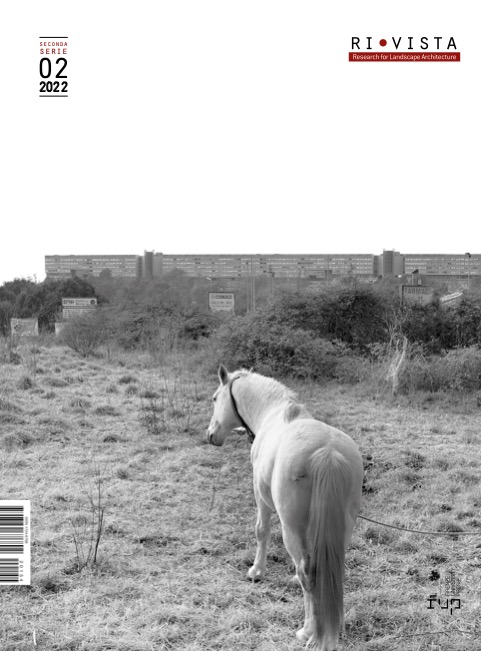Published 2023-02-23
Keywords
- Other-than-Human,
- Wild,
- Queer,
- Deadwood,
- Humusity
How to Cite
Abstract
The article explores the role of decay and its distinctive temporalities, highlighting the need to deal with change, randomness and disorder, to cultivate an attitude open to non-human other- ness, as part of an expanded concept of agency. The decomposition process of the dead tree as an access key to illustrate the importance of reasoning on co-becoming for the landscape project. A relationship that undoes the form, tears it apart, and infects it with otherness. Decomposing is a useful conceptual tool for thinking about biological diversity in the city and for changing the very vocabulary of the project, towards the concept of contamination. The article investigates the saproxylic insects, to discuss some methodologies aimed at interspecies practice, such as decentralizing human-centred ethics, adopting the animal point of view and hypothesizing the queering of the conventional canons of public space.






